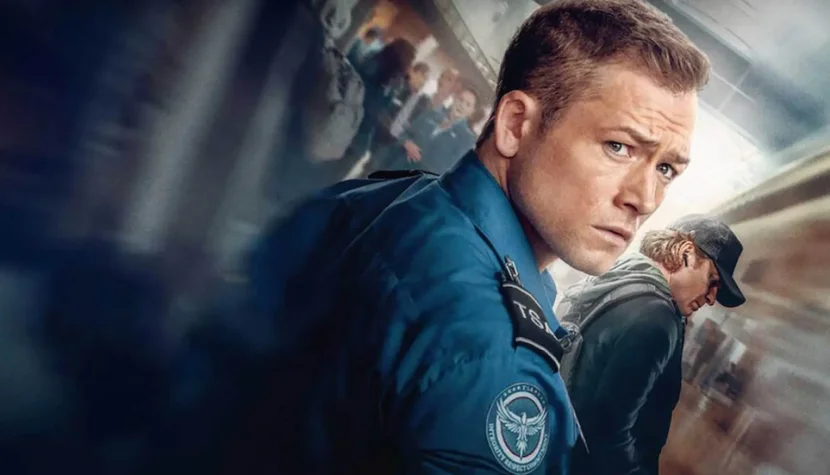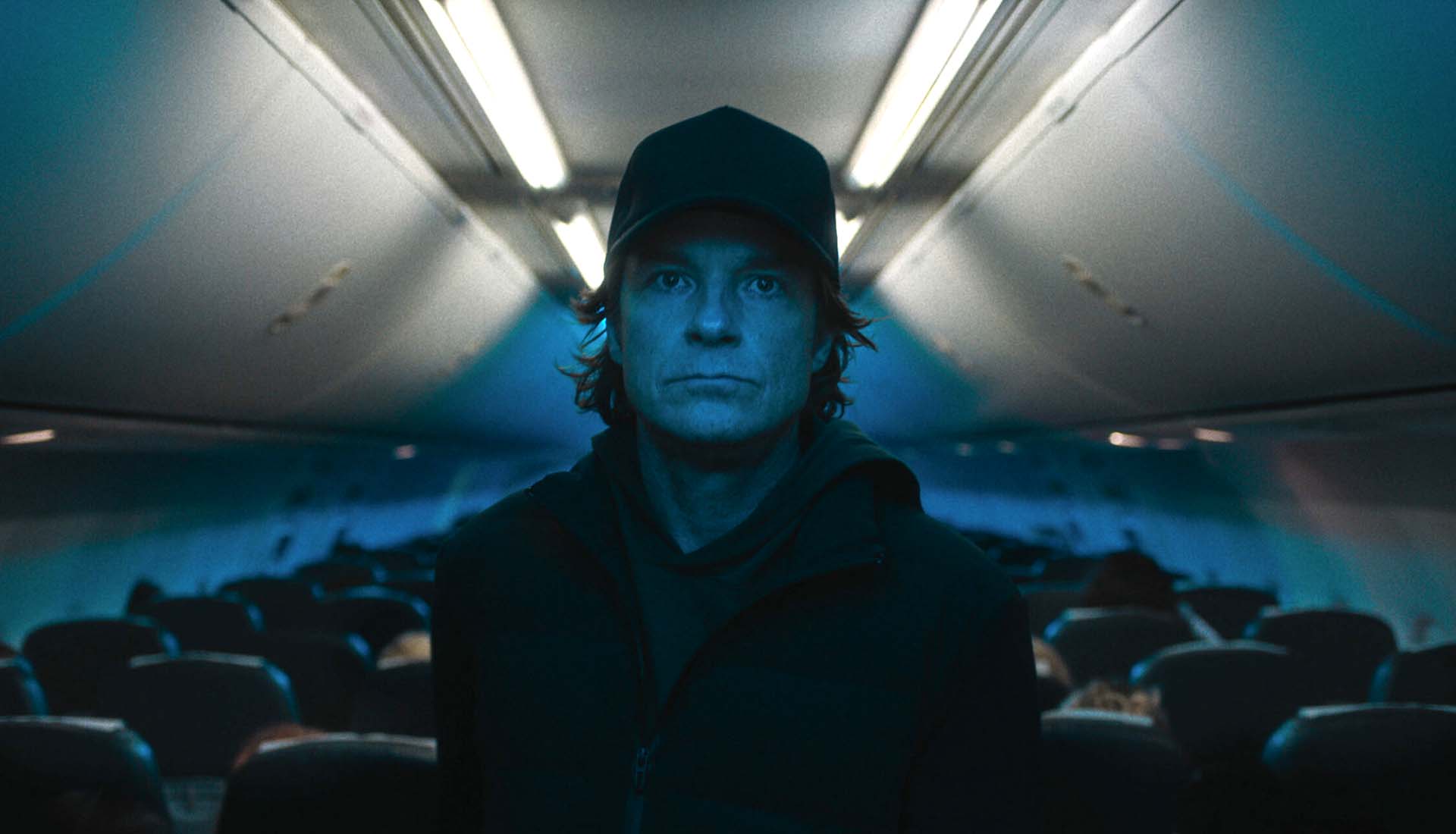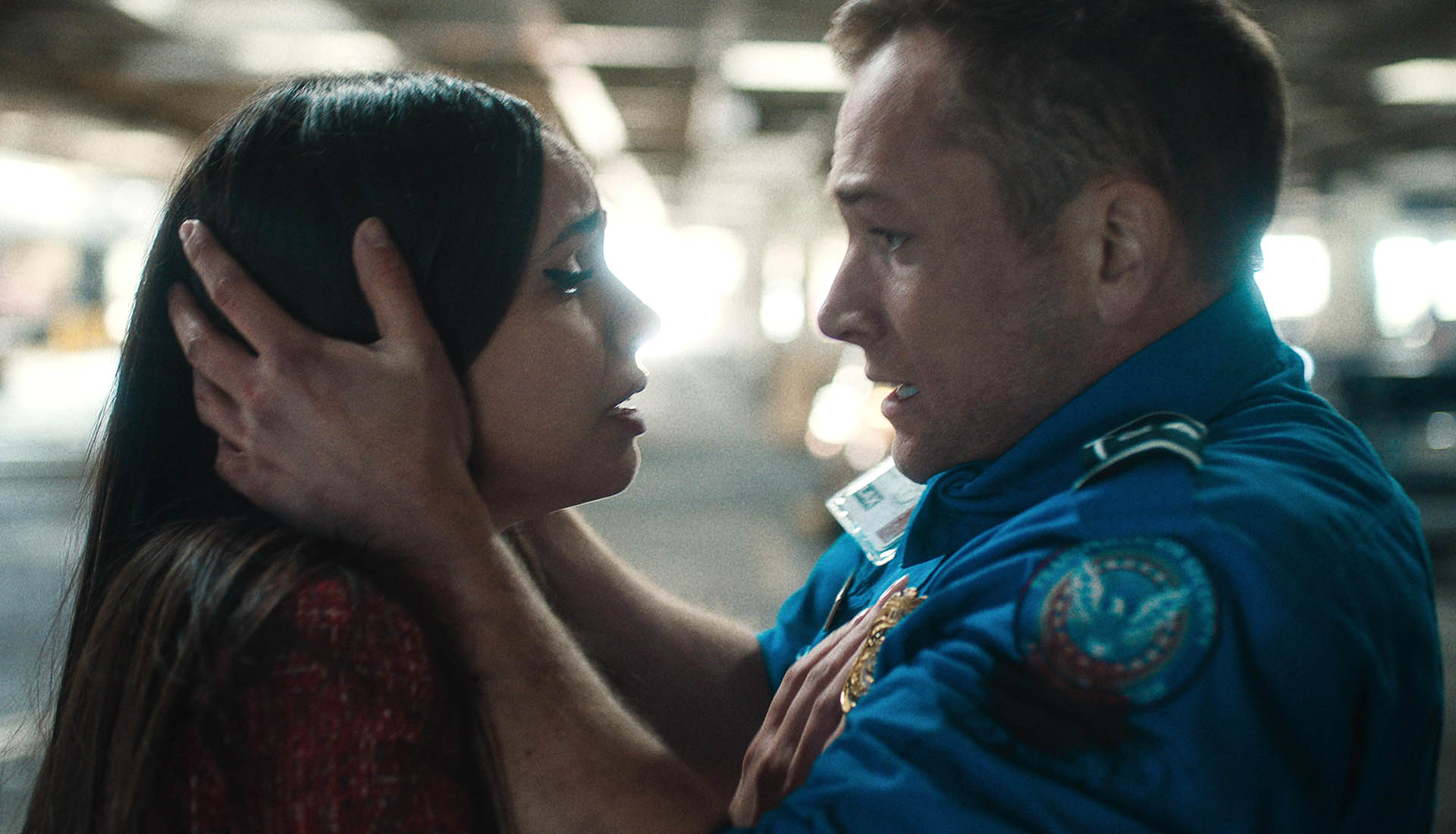CARRY-ON. “Die Hard” has a worthy successor

Certainly, just a copycat—much worse and unlikely to achieve the status of a cult Christmas production. However, this does not change the fact that Carry-On is an excellent action film, the kind Netflix has been lacking for a long time. It was directed by Spanish action cinema specialist Jaume Collet-Serra (known for Unknown among others). A creator who still has many films ahead of him, and it’s safe to say he will skillfully balance on the edge of solid thrillers and unbearable kitsch, while reworking the same themes repeatedly. Carry-On is no different. It utilizes well-worn tropes from Die Hard and other iconic action films. However, it gives them a fresh twist, and thanks to the incomparable Taron Egerton and his co-star Jason Bateman, it rises above the average action films released in 2024.
Yes, Taron Egerton is a trusted name in action films, especially those with a lighter tone. As for Jason Bateman, I’ve never fully trusted him, but I really wanted him to convince me that he could handle a more serious action role as a particularly ruthless villain. And he did just that. Carry-On takes place in an airport, a setting already tried and tested—even in one of the Die Hard installments. The most significant change from the iconic Bruce Willis series is that the antagonist knows from the very start that the protagonist exists. More than that, the protagonist is essential for him to complete his mission. This dynamic creates a unique kind of game between the two, where neither can function effectively without the other. In the end, one of them must die, but before that happens, their tense conversations paradoxically help them rediscover who they are—or who they have become. This relationship, brought to life by Egerton and Bateman, is the film’s greatest strength. It fuels the suspense but also offers viewers a thoughtful break from the typical action scenes focused on fistfights, shootouts, and chases.

The film runs for nearly two hours, so you can be sure the ending won’t be straightforward. I caught myself several times thinking a certain scene was the finale, only to find it wasn’t. There’s no shortage of twists, though they aren’t particularly groundbreaking. But let’s be honest, that’s not the point of a film like this. The key is to keep the audience glued to the screen, and this is achieved not through standard action-film traits but through dialogue that perfectly simulates classic tension. As soon as Ethan (Egerton) puts on his headset and hears the menacing voice of Bateman’s unnamed character, you know you won’t be able to look away. The other characters seem to fade into the background, even though they are important and even pivotal to the story. Still, the focus remains on the two protagonists—divided by an entire world yet united by so much, which gradually becomes evident through their fraught conversations.
However, the film’s strength isn’t just in the dialogue. It’s also in its ability to convincingly portray that the hero of an action movie—typically a figure of heroic ideals—can simply be an ordinary security guard. We root for him, even though we know his life could easily be called that of a failure. The antagonist, on the other hand, cleverly doesn’t always seem outright evil. He’s carrying out a task. He operates outside morality, which he repeatedly emphasizes, and his reasoning and overall discourse are logically coherent. Morally wrong? Certainly—but they exist, and since they happen, they are possible. This creates the greatest challenge for certain ethicists, who believe humans are inherently good.

That said, I don’t think Carry-On offers viewers any profound philosophy. It’s an action movie with a more developed psychological component that positively impacts the overall experience. The action is symbolically set during the holidays, giving the film a more casual, unpretentious atmosphere. As a side note, Carry-On, positioned as a PG-13 movie, could gain so much if the rating were raised to R. Many scenes can’t fully explore not just the physical depths of the characters but their psychological complexities. For keen observers, there’s also a subtle ideological element embedded in one of the supporting characters. It’s undoubtedly a sign of the times—something that wasn’t present in Die Hard, and yet the latter still managed to achieve cult status as a Christmas legend.
But isn’t there a contradiction here? A movie about terrorists, killing, and threatening the world becomes a title people watch during a holiday season meant for love and peace? I still don’t have an answer to this question, though I often try to find one. Carry-On will likely never be a Christmas film—and perhaps that’s for the better. Otherwise, it would lose its strong psychological impact, and that is its most crucial element.

